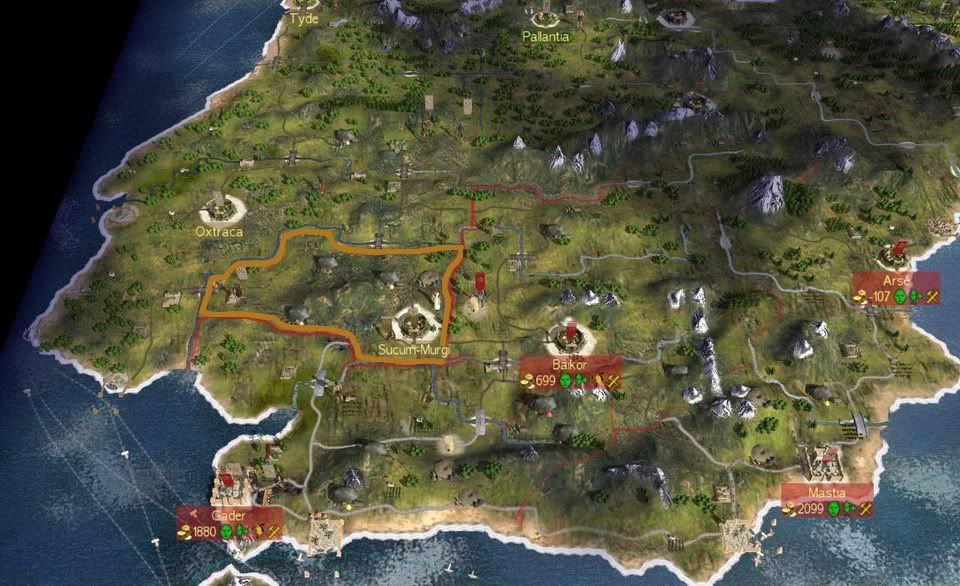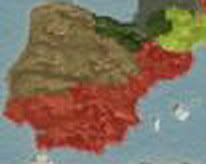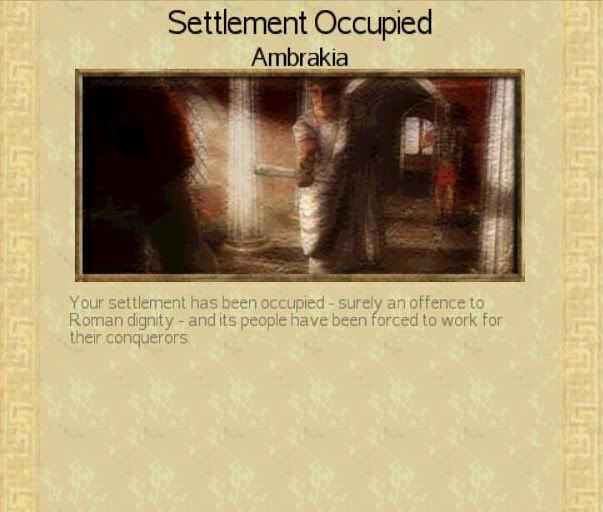What a lovely day, yeah, we won the war.
May have lost a million men, but we've got a million more.
-Portugal. The man
Saneus gambles with Rome and looses
The Roman Empire, by Wolfgang Schreier, Bonn 2003
After the Second Punic war ended in 194 BC the Roman society wanted to recover from the high war effort. Despite this, the Romans still had to fight wars the following years, though those conflicts were much smaller in comparison to the war with Carthage.
Immediately after the peace with the Carthaginians was settled a border conflict occurred with a Celtic tribe called the Turduli. Their king Biurtilaur Alonicoi did not agree with the peace settlement between the two superpowers, thus having to give up some areas of his domain. The Roman presence in the centre of Spain was not big, so Sulla successfully convinced his former enemies, the Carpentani, to hold the Turdulis at bay. For the next years a single Roman legion and the Carpentani fought side by side against the Turdulis.
Map showing the Turduli domain in Spain prior to the war.
In 191 BC the successful Sulla returned to Rome, celebrating his triumph and concentrating on his career. Lucius Iunus Brutus became the new Propraetor of Hispania Ulterior who charged the popular 25 year old Scipio as a Quaestor and as a military legate to deal with the Celtic tribes. Being so young and already leading a legion was only possible due to the legacy of his ancestors. In summer of the same year the young Scipio defeated the Turduli at the Battle of Contasti. The king Alonicoi fled to the north, while the Romans occupied the lands of the Turduli the following spring.
Spain in 190 BC. A great deal is already conquered by Rome.
By 192 BC the Macedonians seemed to give up the treaty it had with Rome. The Macedonian kings had long lasting treaties with the Senate, but after the second Epirote war broke out in 220 BC the relationship seemed to worsen to a certain degree. By 192 BC the Macedon king Dionysianos Saneus publicly demanded to inherit the throne of Epirus, which had been vacant since the end of the second Epirote war in 214 BC. Silanos, the Greek historian, pointed out that this was a ridiculous and obsolete claim.
But the Romans didn’t get to rest after stability was recovered in Spain for the time being. In 188 BC the king Saneus send emissaries to Rome stating that if the Romans would not leave Epirus he would take it by force. The Romans did not think that he would dare attacking a former ally and when Saneus marched into the Epirote city of Ambrakia in early 187 BC, the Roman legion stationed in Epirus stood down and did not prevent his actions, because the garrison commander had no specific orders to attack the Macedonians.
But Saneus didn’t have the support of all the Greeks to fight against Rome. Some thought that attacking an old ally, who in fact helped the Macedonians against the Epirotes during the first Punic war, was a terrible crime. The first Macedon war ended the same year it started. A noble under the name Leocharis Eurypontidos revolted against Saneus, quickly won all the support and arrested Saneus. To show the good will of the Macedonians he turned Saneus over to the Romans. The Senate decided to put Saneus to exile to the Seleucid Empire in the east, where the old and bitter king spent the rest of his remaining years.
While not a long war, the first Macedon war utterly destroyed the once good relationship between the Senate and the Macedonian king.










 Reply With Quote
Reply With Quote
Bookmarks